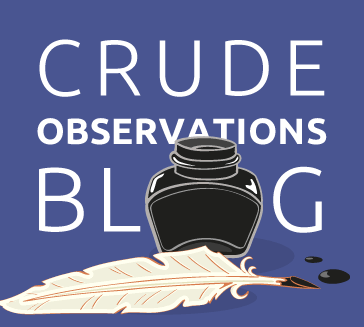Ah Valentine’s Day, I hope everyone had a good one and was able to celebrate with loved ones and scored copious amounts of chocolate, flowers, edible underwear – whatever floats your boat really.
I of course scored my favourite gift, a platter of the finest cheese, a Keto friendly baguette that I was able to enjoy with a flagon of the finest wine and the company of my own Valentine.
But enough about me. Today for some reason I feel the need to talk about the environment. Specifically the environment as it relates to Canada, Alberta, the oilpatch and me personally. Why? Well because I make the mistake sometimes of going on twitter. And on Twitter I get into conversations I probably shouldn’t and, well, last night it was about that weird new draft Resolution floating around in the US called the Green New Deal. Not to be confused with the “New Deal” that Franklin Delano Roosevelt so famously championed during the Great Depression, this Green New Deal is a kind of progressive utopian fantasy being floated by the Democratic Socialists recently elected to the US Congress (like Alexandra Ocasio Cortez) whose sole intent seems to be to ensure that Donald Trump wins an easy reelection.
Well OK, maybe that is too harsh. I’m sure the intentions are pure. After all, the resolution is driven by a fear of climate change, which we all fear in our own relative ways, hence the whole “green” aspect, but the document is more than just a carbon tax and wind subsidy missive. No, it contains all sorts of catnip policies for the slacktivist progressives in the United States – guaranteed minimum income, eradication of fossil fuels, high speed rail eliminating air travel, the end of coal, massive investment in renewable energy, management of agricultural emissions (cow farts), the retrofitting of all buildings in the US over the next 10 years…
You get the picture, chock full of practical ideas that can be easily implemented at minimal cost. Oh wait, that’s the other part – this abomination will be paid for by printing money which won’t raise inflation, because all this investment is going to unlock all sorts of productive capacity in an economy already operating at near capacity in a near zero interest rate environment. You can’t make this stuff up – I guess they didn’t read my Venezuela piece last week.
At any rate, there I was on Twitter excoriating this fantasy of a policy platform when I got into a massive debate about the environment, carbon, the calamitous impending doom and horror of climate change with such intellectual luminaries as Patton Oswalt, greendoom_109, the cobomite maneuver, birdytoot and alienjazzcat. As is easily surmised, this whole thing descended into a mass of insults sent mainly my whereby little old me was accused of perpetrating all sorts of degradations and crimes against the environment, calling me a fossil fuel dinosaur (that was the polite one) and basically telling me I cared naught for nothing. As is my true calling I poked and prodded a bit more, revealing myself, much like Sauron in Lord of the Rings, as a willing participant in the desecration of the planet through my activities in the energy sector, at which point the twitterverse convulsed and went silent. My complicity in the demise of Gaia exposed.
Alone with my thoughts I asked myself, this can’t be true, can it? Am I really that bad? Don’t I love the environment as much as the next guy? Don’t we try here in frigid Alberta to do our best? What does that even mean? How offended should I be when someone who lives an uber-privileged urban life in a place like New York or Los Angeles is touting their bona fides on the environment when I can tell right off the bat they will never be impacted by climate change and they are really just hypocritical jackasses?
Plenty offended as it turns out.
I’m not sure what these folks do to protect the environment or participate in the environmental movement in any more compelling way than signing petitions and killing electrons on social media. What I do know is what I think, what I believe and what I see around me – in industry, in action, in practice and in regulation. And I don’t think it’s as bad as the doomsayers say it is, I mean of course it’s not, the attention the scare-mongers get is their oxygen. Rationality is often mine.
So, what do I want to tell all these rocket geniuses about the environment in Canada, our industry and me personally, if I was given the audience, the time and the characters? Especially since the industry I operate in, according to widely held public perception, is anathema to any and all things green, clean and environmental?
Hmm, well first and foremost, let’s be absolutely clear – unless there is some real world version of Mr. Burns (Donald Trump doesn’t count), no one in their right mind is actually “against the environment” or has it in for trees or wants to create lasting catastrophic climate change. I’m just putting that out there. If you can’t get past that, well we don’t have much to talk about.
Me personally? I like the environment. I may even love it. If it’s even possible to love a concept. In fact, I would have you know that some of my best friends are trees. I have myself on occasion been known to partake in such activities as hiking, looking at flowers and otherwise naturing.
And as Canadians, we are blessed with unparalleled abundant and unspoiled natural endowments, albeit under pressure from industrial development, resource extraction and, to a certain extent, rapid urbanization. That said, we Canadians, or so we are told, often take nature and the environment for granted because there is so much of it. Or do we?
Seriously though, sustaining and maintaining the environment is a fundamental part of our quality of life as Canadians – it’s part of what we sell to the world. Mountains, canoes, tundra, ice, moose, beavers. But we have to be mindful that the society we live in, the national wealth we continue to build and the quality of life we enjoy is born of this abundance and depends to a large extent on the exploitation of these resources.
With this in mind and bringing it down to the industry context, I guess I would say that I am an environmental pragmatist which I suspect is an attitude shared amongst the majority of energy sector workers and, dare I say it, Canadians. This is driven by an acknowledgement that the privileged lifestyle that I and my family and friends and most of the rest of us in North America enjoy is due in very large part to an ability to harness cheap, abundant energy to light homes and businesses, power factories, energize transportation, reduce the cost of goods and services and invigorate the production of affordable food. The other side of this equation, for me, and really in the regulatory environment we operate in, is a necessary respect for the environment that allows this to exist, the bounty that Canada has to offer in terms of raw material and different sources of energy – fossil or renewable and the trade-off that development of this bounty must at the same time protect it. Thus, from an industry perspective, the environment must of necessity be a critical element in the thinking of oil and gas companies and the service companies that work for them, both as a regulatory consideration as well as a stewardship and stakeholder perspective as people who live, work and breathe in the communities where these resources are extracted.
As I say all the time, Canada has some of the most stringent regulations on oil and gas development in the world – don’t ask me, ask the burrowing owl or the migrating pigmy butterfly or whichever bit of wildlife is the latest to stop and force the rescheduling of major multi-million to billion dollar projects.
For these reasons I am pro fossil fuel development, pro pipeline, pro regulation, pro environment and pro renewables. When some years ago Obama said “all of the above” about US energy strategy, it was merely a catchy slogan, it happens to be the right way to go. We can have sustainable development of fossil fuels and a commitment to renewables at the same time – I don’t see it as a contradiction.
Consider pipelines. Pipelines are the safest, most efficient and most environmentally responsible way to ship oil and gas across the continent. They are a steel tube that transports a potentially toxic substance in a closed loop from underground to conversion to needed products. That there is even a debate about building pipelines is preposterous when you consider the alternatives all have issues in terms of capacity and their own levels of safety – rail (can derail, if the product is toxic it can explode), barge (a waterborne spill) or truck (c’mon, really?). In a world where fossil fuel usage is going to grow for the foreseeable future (and it is), blocking or denying building, replacing or upgrading these projects strikes me as short-sighted and foolish. I look at the protestors and I wonder what their motivations are and how much they actually know about what they are protesting aside from cozy slogans.
It seems that all too often, protestors are either protesting the wrong thing in the right place or the right thing in the wrong place. It’s all good to register your concerns, hold a proponent to the highest and most stringent building standards or even to lawfully protest a pipeline that is being laid across the Rockies to the coast, but if you are too obtuse to consider the bigger picture, the benefits to local communities and economies or refuse set your sights on places where the real bad stuff happens (hello Russia/China, I am looking at you), you are really a bit of a hypocrite.
In my view, if you really wanted to protest environmental degradation, you would be protesting Russian oil spills, the toxic disaster that is Lake Maracaibo in Venezuela (hint – it’s flammable!), Kazhakstan tire fires, the massive expansion of coal plants in China, clearcutting of the Amazon for agriculture and sugar cane to produce ethane or any number of additional under-reported and under-protested indignities being done to the planet.
Meanwhile, Alberta and by extension the oil sands are continually demonized for their mining operations (that they have to reclaim and which represent only 4% of the deposit area), their water usage (80% of which is recycled back into the process) and air quality (Fort Mac – better than Toronto, hmm – don’t even get me started on cities in China). And if it’s not oilsands, it’s those pipelines that transport them somewhere. Just this week the governor of Washington Jay Inslee said that he was going to do everything in his power to stop the TransMoutain expansion and tanker expansion. Wow. What a principled stand, right? Shoulder to shoulder with BC. Except, Washington gets 20% of its oil from the existing Transmountain pipeline and the majority of the balance hits its 650,000 barrels per day worth of refining capacity via tanker and rail, from places like Alaska, Saudi Arabia and Russia. But our oil isn’t worthy because “environment” – what a hypocrite. Hey Jay, you know what happens if we are able to ship more oil to your refineries by expanding Transmountain? That’s right – LESS tankers. Jerk. And if it’s not oil pipelines that can’t be built it’s Hollywood environmental wannabes cozying up to the latest protest against a natural gas pipeline that has massive support and will create billions of dollars of wealth for First Nations communities that have no other source of money aside from government. Some of these people don’t even research the protests they sign up for. In a previous twitter fight, I schooled Mark Ruffalo about the three year consultation and accommodation process that TransCanada went through with Coastal Gas Link. Think I heard back?
This hypocrisy is a reminder why me and most people in our industry literally lose their minds when a fly-in celebrity drops by to tell us how evil we are and why the oilsands is Mordor or pipelines are evil or that we are singularly committed to destroying the environment out of spite and carelessness.
Seriously? This is our home. We don’t go to your house and tell you how feckless and irresponsible you are or question the need for a 25,000 sq. ft. house with an elevator for 2 people or the private yacht you borrow, or the private jets you use. We watch the movies, enjoy the music and on occasion roll our eyes at the excess and then get back to work trying to make a better life for our families while respecting the world we live in.
Fly in protestors got their 15 minutes of airplay, knew they were never really in any danger from the authorities and got out like the exploitive carpetbaggers they were when they got their way and haven’t been seen since. They were there because it was convenient. And they filled in the petition.
We do our part here as industry participants. The oil and gas industry invests hundreds of millions of dollars in health, safety and environmental initiatives every year. Our clients adhere to a standard of practice that was inconceivable even 10 years ago. People and companies that come to Canada are shocked at the rules they have to follow. Some will even cut and run because they can go somewhere else that doesn’t give a crap. But we do and if you want to play in our backyard, these are the rules you have to follow. Because we do care about what is left behind.
I often think that if the Canadian regulatory environment was globally applied we would soon see the break-even price of oil and gas development rise pretty rapidly and the tiring discussion about whether Canada was a competitive jurisdiction for resource extraction would finally end because the playing field would be level.
Are there problems? Sure, nothing is ever perfect. Accidents happen. But we are transparent, nothing is hidden. We own our mistakes and figure out why they happened and take steps to mitigate the risk. Then we get back to work and make sure it doesn’t happen again. We don’t need a “New Deal” to reduce emissions or respect the environment. There are literally hundreds of innovative companies in Canada constantly (and successfully) looking for ways to extract our resources in a more sustainable and less environmentally impactful manner so that the Canadian economy can continue to grow and maintain its status as one of the most envied in the world. That’s good isn’t it? Pop quiz, what was the last meaningful innovation in environmental sustainability that came out of, oh I don’t know, Nigeria. I’m waiting. I have time. No? Didn’t think so. We do it all the time.
So yeah, pro-development, pro-regulation, pro-Canadian fossil fuels and, yes, pro-environment. I think I can safely say to all my Twitter haters that they can go pound (oil) sand on all their criticisms of Canada and Alberta and me.
So where does that put me in the whole Twitter debate? Probably never going to win that one, certainly not with only 280 characters to both insult someone and defend my position. But it was nice to get this bit off my chest and remind myself again that it is possible to both work in the energy industry and care about the environment. We do our part and we do it pretty well. Maybe I should just stop arguing it on twitter.
As for the Green New Deal? Here’s a Valentine’s poem for its creators:
Your New Deal is Green
Your passion misdirected
Campaign on this pledge
Trump gets reelected.
Think about it. There is no need for a “New Deal” to reshape the American economy. Trying to force the issue like this will only backfire.
Prices as at February 15, 2019 (February 8, 2019)
- The price of oil was flat early then rose during the week as over-supply concerns eased and OPEC whacked exports
- Storage posted an increase
- Production was flat
- The rig count in the US was up marginally
- Withdrawals from storage were lighter than anticipated for natural gas. The market was unmoved
- WTI Crude: $55.75 ($52.68)
- Western Canada Select: $41.25 ($43.25)
- AECO Spot *: $2.80 ($3.10)
- NYMEX Gas: Unchanged ($2.658)
- US/Canadian Dollar: $0.7522 ($0.7626)
Highlights
- As at February 8, 2019, US crude oil supplies were at 450.8 million barrels, an increase of 3.6 million barrels from the previous week and 28.7 million barrels above last year.
- The number of days oil supply in storage is 27.4 compared to 26.6 last year at this time.
- Production was flat for the week at 11.900 million barrels per day. Production last year at the same time was 10.080 million barrels per day.
- Imports fell to 6.210 million barrels from 7.083 million barrels per day compared to 7.888 million barrels per day last year.
- Exports from the US fell to 2.364 million barrels per day from 2.870 million barrels per day last week compared to 1.322 million barrels per day a year ago
- Canadian exports to the US were 3.190 million barrels a day, down from 3.701
- Refinery inputs fell during the during the week to 15.768 million barrels per day
- As at February 13, 2019, US natural gas in storage was 1.882 billion cubic feet (Bcf), which is about 333 Bcf lower than the 5-year average and about 30Bcf less than last year’s level, following an implied net withdrawal of 78 Bcf during the report week
- Overall U.S. natural gas consumption rose 6% during the report week
- Production for the week was flat. Imports from Canada decreased 4% from the week before. Exports to Mexico increased 6%
- LNG exports totaled 21.3 Bcf
- As of February 15, 2019, the Canadian rig count was down 16 at 224 (AB – 164; BC – 19; SK – 54; MB – 4; Other – 2. Rig count for the same period last year was 318.
- US Onshore Oil rig count at February 15, 2019 is at 857, up 3 from the week prior.
- Peak rig count was October 10, 2014 at 1,609
- Natural gas rigs drilling in the United States were down 1 to 194.
- Peak rig count before the downturn was November 11, 2014 at 356 (note the actual peak gas rig count was 1,606 on August 29, 2008)
- Offshore rig count increased to 21
- Offshore peak rig count at January 1, 2015 was 55
US split of Oil vs Gas rigs is 80%/20%, in Canada the split is 68%/32%
Trump Watch: Government shutdown averted! Less funding for the wall! National emergency declared! This is about as far from Mexico paying for the wall as I think you can get.









